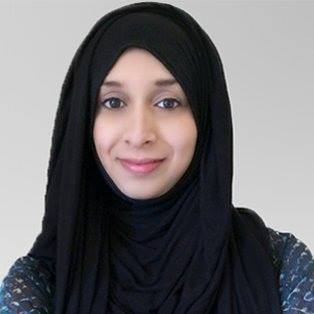I was once told by someone I networked with that, “You really don’t have the right look with your hijab on.” The person was in a position of authority within Britain’s mainstream media. I am not the first visibly Muslim woman to be told this, nor am I the only one who has been discriminated against for practising my faith. In fact, I know many Muslims who have faced Islamophobia, who are either working in the mainstream media or have left the industry because they felt that they were unable to progress.
After speaking out about my own challenges within the industry many other Muslims and people of colour have shared their own experiences of racism, Islamophobia and unequal opportunities. Hence, it was no surprise to me when I read the findings of the Centre for Media Monitoring’s latest report on the “British Media’s Coverage of Muslims and Islam (2018-2020)”. The landmark report analysed over 48,000 articles and 5,500 broadcast clips which revealed that “over 60 per cent of online media articles and 47 per cent of television clips associate Muslims and/or Islam with negative aspects or behaviour”. With so much negativity within the mainstream press, it is no wonder that many Muslim journalists and media professionals face challenges and are often repressed from calling out the hatred that they have faced.
Islamophobic tropes, sensationalist headlines and antagonising copy were just some of the issues outlined by the report within many British press outlets that had published and reported on stories involving Muslims or Islam. There are countless examples I can recall myself, such as the Sun’s sensationalist and misleading headline that “1 in 5 British Muslims” sympathise with Jihadis; the Daily Star’s headline saying that the “BBC puts Muslims before you”; and Trevor Phillips’ column which was cited in the report saying that “Muslims are a nation within a nation”. There are many more instances where Muslims have been vilified and targeted by misleading headlines, articles and broadcasts.
READ: Austria is targeting innocent Muslims for nefarious purposes
What is most depressing to me, as a journalist, is that the words “Islamic” and “Muslim” have been used to describe perpetrators of terrorist acts when they are not even following the tenets of Islam by carrying out those crimes. We never hear any other religion being misused to describe a person who has committed a crime, and rightly so. Why can’t the same approach be afforded to Muslims? If media institutions continue to keep on associating Islam and Muslims with negative rhetoric it will only heighten further the level of hate and fear that already exists within our society.
![Protesters holds a sign which reads " Islamophobia is not freedom" outside the French Embassy in London on August 25, 2016 [JUSTIN TALLIS/AFP via Getty Images]](https://i0.wp.com/www.middleeastmonitor.com/wp-content/uploads/2020/10/GettyImages-595211532.jpg?resize=933%2C622&ssl=1)
Protesters holds a sign which reads ” Islamophobia is not freedom” outside the French Embassy in London on August 25, 2016 [JUSTIN TALLIS/AFP via Getty Images]
The root of the problem lies with the fact that Islamophobia is often fanned by those in senior positions within the media; those who have the final say over what makes the headlines. Moreover, Muslims I’ve spoken to within the media tell me that the Islamophobic comments that they have faced tend to have been from people in positions of authority. This is one of the reasons why there needs to be better representation of people from all walks of life, including Muslims, people of colour and those from other underrepresented backgrounds, in senior positions within the media. This would help the British press to have diverse perspectives from those with lived experiences who can shape stories fairly and accurately.
READ: Islamophobia and colonial brutalities will always poison Algerian-French ties
Media institutions within Britain must take some level of responsibility for what they publish when it comes to the incitement of hate against Muslims. British Muslims are the ones who have to bear the brunt of negative press in every aspect of their life and within wider society. Islamophobia affects Muslims in employment, on the streets, serving the community and in terms of being able to practise their faith openly while feeling safe when doing so. I have spoken to Muslim women who hardly leave their house due to incidents such as having their hijab pulled off or facing verbal abuse whilst out with their families; this is totally unacceptable. Most of the people who have experienced Islamophobic abuse, including myself, believe that the media has a part to play in perpetuating it. This Centre for Media Monitoring report supports such a belief.
It is thus hoped that the report shedding light on the extent of Islamophobia within the British media can also be used as a call to action for the British media to finally take heed. If significant changes are not made, Islamophobia will continue to fester.
The views expressed in this article belong to the author and do not necessarily reflect the editorial policy of Middle East Monitor.


![Stop the War Coalition placards that say "No to Islamophobia. No to war." on November 20, 2021 in London, England. [Hollie Adams/Getty Images]](https://i0.wp.com/www.middleeastmonitor.com/wp-content/uploads/2021/12/GettyImages-1236681255.jpg?fit=1200%2C800&ssl=1)









